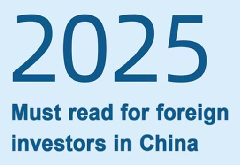NMPA Announcement on Issues Pertaining to the Implementation of the Provisions for Drug Registration
On March 31, 2020, NMPA issued the Announcement on Issues Pertaining to the Implementation of the Provisions for Drug Registration (No. 46 of 2020), which reads as follows:
The Provisions for Drug Registration (SAMR Order No. 27) (hereinafter referred to as the Provisions) has been promulgated by the State Administration for Market Regulation, and shall enter into force as from July 1, 2020. For better implementation of the new Provisions and their smooth transition and connection with the original Provisions, relevant matters are hereby announced:
1. After the release of the new Provisions, the normative documents and technical guidelines related to the new Provisions (hereinafter collectively referred to as the new Provisions and related documents) will be issued as per procedures. New stipulations and requirements made in the new Provisions shall prevail; and otherwise, the existing relevant stipulations and requirements shall apply.
For working procedures related to drug registration application & acceptance, review & approval, if no adjustments have been made by the new Provisions and related documents, the existing relevant stipulations shall apply.
2. Since the newly revised Drug Administration Law took effect, drugs approved for marketing will be issued with drug registration certificates and attachments, and the New Drug Certificate shall no longer be issued. The drug registration certificate contains information such as the Marketing Authorization Holder and the manufacturer, together with the approved production process, quality standards, package inserts and labels. The approved chemical APIs shall be issued with the approval notification and the approved production process, quality standards and labels.
3. Before the implementation of the new Provisions, the submission of dossiers for drug registration application by MAH in the form of entrusted production shall follow the relevant provisions of the Pilot Plan on Drug Marketing Authorization Holder System; after the implementation of the new Provisions, the submission of application dossiers shall follow the newly released requirements.
4. For applications for drug marketing accepted after the new Provisions go into effect, the applicant shall obtain the corresponding drug production license beforehand; for applications for drug marketing accepted before the implementation of the new Provisions and approved after the implementation, the applicant shall obtain the corresponding drug production license before approval (If the drug manufacturing enterprise is the applicant, the drug production license shall be provided when the application for drug marketing is being accepted) .
During the period from the MAH pilot to the starting of the new Provisions, MAH with marketing approval acquired via entrusted production shall apply for drug production licensing to drug regulatory departments of their corresponding provinces, autonomous regions, and municipalities in accordance with the relevant provisions of the Provisions for the Supervision and Administration of Drug Production.
5. Drug registration applications accepted before the implementation of the new Provisions shall be reviewed and approved in accordance with the original drug registration classification and procedures. Pharmaceutical professional & technical institutions such as the National Institute for Food and Drug Control, the Chinese Pharmacopoeia Commission, the Center for Drug Evaluation, and the Center for Food and Drug Inspection should carry out relevant work on the premise of ensuring drug safety in accordance with the principles of legal compliance, fairness & equity, and benefiting the counterparty. The review, verification, inspection, approval of generic names and other tasks shall be handled in a timely manner. In principle, the follow-up work will be arranged in accordance with the chronological order of acceptance. Applicants can also choose to withdraw the original application, and apply anew per the newly implemented Provisions.
6. The scope and procedures of prioritized review & approval shall fit the following provisions:
(1) Drug registration applications accepted before the issuance of the new Provisions shall be implemented in accordance with the scope and procedures stipulated in the Opinions on Fueling Pharmaceutical Innovation via Prioritized Review & Approval (CFDA Department of Drug and Cosmetics Supervision [2017] No. 126) .
(2) Drug registration applications accepted between the issuance and the implementation of the new Provisions shall be handled in accordance with the scope stipulated in the new Provisions and the Opinions on Encouraging Priority Review and Examination and procedures prescribed in the Opinions on Fueling Pharmaceutical Innovation via Prioritized Review & Approval (CFDA Department of Drug and Cosmetics Supervision [2017] No.126) .
(3) Drug registration applications accepted after the implementation of the new Provisions shall be executed in accordance with the scope and procedures prescribed by the new Provisions.
7. Drugs approved with conditions before the implementation of the new Provisions shall follow the provisions in Article 78 of the newly revised Drug Administration Law concerning post-marketing management of conditionally approved drugs.
8. For drugs manufactured overseas that are approved before the implementation of the new Provisions, the drug approval number shall be stated in the drug registration certificate as required by the new Provisions. The drug approval number of domestic sub-packages of drugs manufactured overseas shall be, invariably, identical with that on the bulk packaging.
9. For clinical trials of drugs that have been approved before the implementation of the new Provisions, the drug clinical trial license of those that have not been started within three years from the date of approval (taking the signing of informed consent of the subjects as the starting point) will automatically lapse.
10. From the date of promulgation of the new Provisions, the safety information related reports during the clinical trials of drugs shall be abide by the new Provisions and existing regulations.
11. For drugs approved before the implementation of the newly revised Drug Administration Law, MAH shall follow Article 49 of the newly revised Law and the NMPA Announcement on Issues Pertaining to the Implementation of the Drug Administration's Law (No. 103 of 2019) and update relevant MAH information in the package inserts and labels. Drugs produced in-country shall be subject to record filing by drug regulatory departments of corresponding provinces, autonomous regions and municipalities directly under the Central Government, while drugs produced overseas shall be filed at CDE. Drugs manufactured before December 1, 2020 can keep the existing printed package inserts and labels. The package inserts and labels of marketed drugs can continue to be used within the period of drug validity. If otherwise required by NMPA on revising package inserts and labels, the NMPA requirements shall prevail.
12. Drug administration departments at all levels should conscientiously implement the new Provisions, strengthen the corresponding promotion and training programs, pay attention to understand the important situations and problems encountered in implementation, and communicate and feedback in time to NMPA, who has set up a Column for Provisions for Drug Registration on the webpage to promptly summarize and release relevant documents and policy interpretations.



